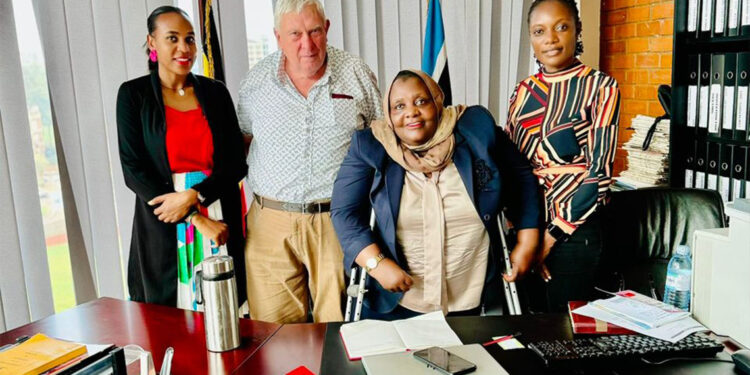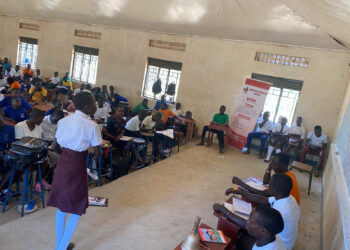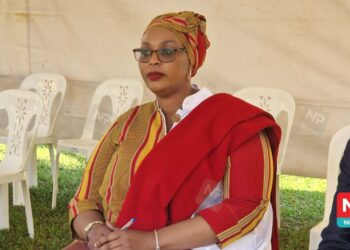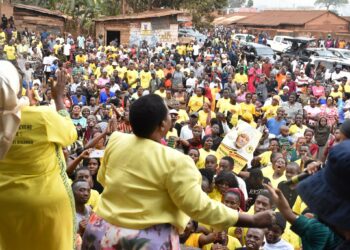In a collaborative effort to provide sustainable financial empowerment for women raising children with disabilities, Fennatujjune CEO Ramonah Shantal has spearheaded an innovative partnership with the Chairperson of Uganda’s Equal Opportunity Commission, Mrs. Juuko Safia Nalule, and All Green Energy.
The partnership, announced during a visit to the Commission at the beginning of this week aims to empower these women through the introduction of a new green energy project centered around the production and marketing of “hot boxes” eco-friendly cooking devices made using environmentally safe materials.
Shantal emphasized that this project primarily targets mothers who have been abandoned by their partners due to cultural stigmas associated with raising children with disabilities. She highlighted that in rural areas like Mbale, it is still believed that giving birth to a child with a disability brings a curse upon the family.
As a result, many women are left alone to raise their children, struggling to provide food and necessities while their husbands often remarry. “Most of these women resort to farming while their children are left unattended at home,” said Shantal. “Through our new initiative, we aim to not only provide these mothers with a source of income but also teach them valuable skills in the production of these hot boxes.”
The hot box, a product that cooks food while being environmentally friendly, is a new technique being introduced to Uganda by Fennatujjune in collaboration with All Green Energy. “We want to reserve the rights to this technique for mothers raising children with disabilities, ensuring they are the ones who benefit financially from its sale and distribution,” Shantal added.
The project aligns with Ms. Nalule Juuko’s ongoing efforts at the Equal Opportunity Commission, where women with disabilities are already being empowered through coffee-growing initiatives. The Commission’s coffee project teaches women how to grow, market, and sell coffee, while also promoting the use of eco-friendly briquettes made from coffee waste as an alternative to firewood.
This partnership aims to merge the Commission’s coffee initiative with Fennatujjune’s hot box project, creating a platform for broader environmental sustainability and financial empowerment. “We discussed how we can jointly train women with disabilities in both coffee growing and hot box production, creating more employment opportunities for them,” said Shantal.
Shantal also acknowledged the persistent challenge of integrating persons with disabilities into the formal job market, noting that while there has been a positive reception, enforcement of employment laws has been weak. “Employers are still reluctant to hire persons with disabilities. That’s why we need to focus on creating self-employment opportunities for them—decent jobs that go beyond carpentry and similar trades.”
This new project, which focuses on both financial independence and green energy solutions, seeks to change the narrative by providing mothers raising children with disabilities the tools they need to thrive. Shantal highlighted that Fennatujjune and All Green Energy are actively seeking funding to kickstart the production process. The first phase will involve training, followed by hot box manufacturing and market distribution.
“This is not just about financial empowerment,” said Shantal, “it’s about giving these women confidence and a voice, helping them take their rightful seat at the table.”
All Green Energy CEO Mr Marinus Van Stijn noted that the hotbox cooking technique is based on a centuries-old method of stewing and cooking food using locally available materials. This method saves up to 90 percent of the wood typically used in traditional 3-stone fire cooking. Normally, each family consumes 3 to 5 tons of firewood annually, spending 20-40 percent of their monthly income on firewood or charcoal for cooking.
“With the hotbox, firewood consumption is reduced to just 0.5 to 1 ton per year, significantly cutting CO2 emissions by over 5 tons annually per family. This reduction not only helps save the environment but also allows families to retain 15-35 percent of their monthly income, which can be redirected toward other needs. The project aims to save up to 50,000 tons of CO2 emissions each year,” he said.
Mr Marinu emphasized that by participating in the production and sale of hotboxes, families of persons with disabilities will generate income, while users of the hotbox will see significant financial savings. “When 10,000 families adopt this technique, the cumulative CO2 savings will protect our climate further. Moreover, the carbon credits generated from this reduction in emissions could become a valuable source of income for Fennatujjune, making the organization less reliant on donor funding. Families that switch to hotbox cooking will not only reduce their environmental footprint but also improve their financial stability.”
Mrs. Juuko welcomed the empowerment project and pledged her full support for the initiative. “I have been empowering women with disabilities through coffee farming, and we have made significant progress. However, this initiative will further boost our efforts toward empowering women with disabilities, as well as mothers raising children with disabilities,” she said.
The project, while initially focused on women, is expected to expand to include men in the future. For now, the focus remains on providing a sustainable livelihood for mothers who have been left vulnerable due to societal stigmas and cultural beliefs.
Do you have a story in your community or an opinion to share with us: Email us at editorial@watchdoguganda.com













